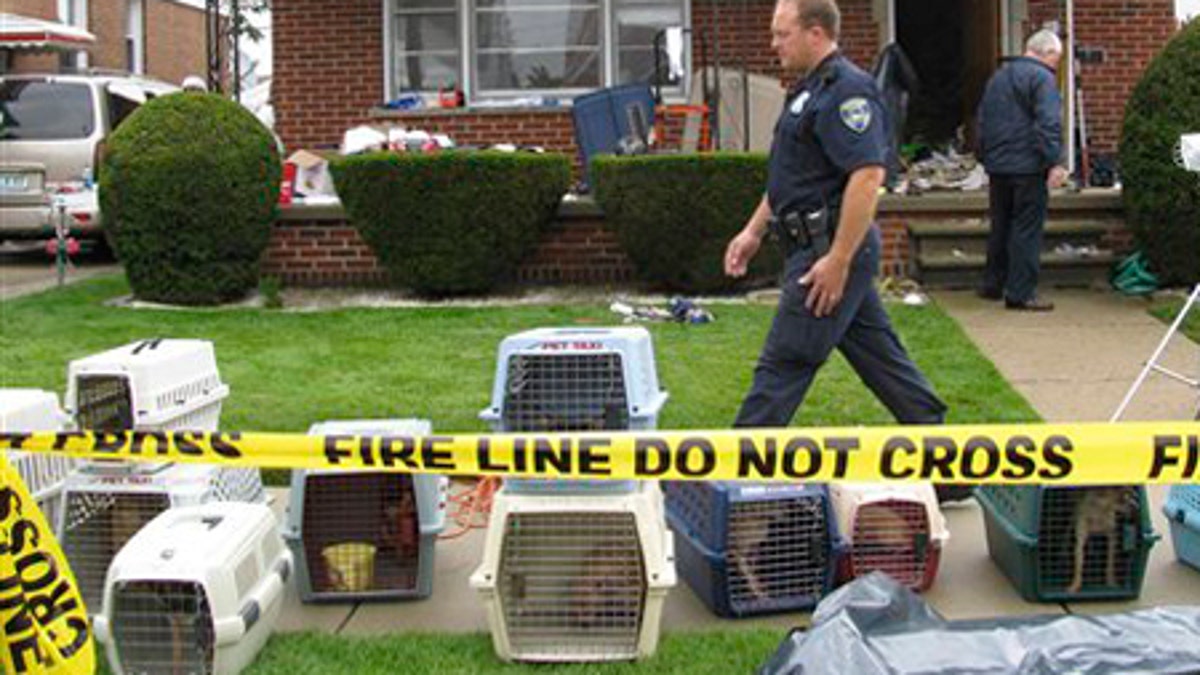
July 22: Law enforcement officials search a home in Dearborn, Mich. (AP)
DEARBORN, Mich. – Police on Friday found about 150 dead dogs packed in freezers in the basement of a Michigan house littered with feces and trash where more than 110 live dogs, mostly Chihuahuas, were rescued this week.
Dearborn Police Chief Ronald Haddad said the 56-year-old man found Wednesday in the suburban Detroit home with the animals may have been living with an increasing number of dogs for up to three or four years.
"The house was in complete disarray, very cluttered and, with 100-plus dogs running around in there, very filthy," he said.
A criminal investigation was under way at the two-story brick home, Haddad said. He said the case could be forwarded to prosecutors for possible animal-cruelty charges.
Haddad said 112 live dogs had been removed from the home as of Friday, and police believe about five more may be hiding inside. He declined to release details about the breed of the dead dogs.
The man living in the house was taken to a local hospital for observation, and a lawyer acting as family spokesman said he was getting a psychiatric evaluation. Investigators previously said the man apparently was hoarding the dogs.
Neighbors in the past had complained of an odor at the Dearborn home, which had a neatly cut lawn and manicured bushes. But this week was the first time officials got inside, and crews needed masks to breathe.
Trash was piled from floor to ceiling in places, and feces and urine was throughout the home. Forty-two ailing and feces-covered dogs were rescued Wednesday. Crews returned fficult to get European spare parts or planes as well. The country has come to rely on Russian aircraft, many of them Soviet-era planes that are harder to get parts for since the fall of the Soviet Union.
Iran's worst crash came in February 2003 and also involved a Russian-made Ilyushin that plowed into the mountains of southeastern Iran, killing 302 people — mostly members of the elite Revolutionary Guard.
Some of the jets in Iran's fleet are U.S.-made craft bought before the 1979 Islamic Revolution, which led to a cutoff in ties between the nations. U.S. sanctions imposed after the seizure of the U.S. Embassy in November 1979 have prevented Iran from buying parts for those planes or purchasing new ones.
The sanctions also bar sales of European jets with a certain amount of U.S. parts, limiting Iran's ability to buy from Europe.
As a result, Iran has focused on Russian-built planes — like the Tupolev and Ilyushins, the Soviet-era workhorses for Russian civil air fleets.
After the Soviet collapse, government funding sharply declined for manufacturers of aircraft and spare parts, and other countries using the planes have had a harder time getting parts.
